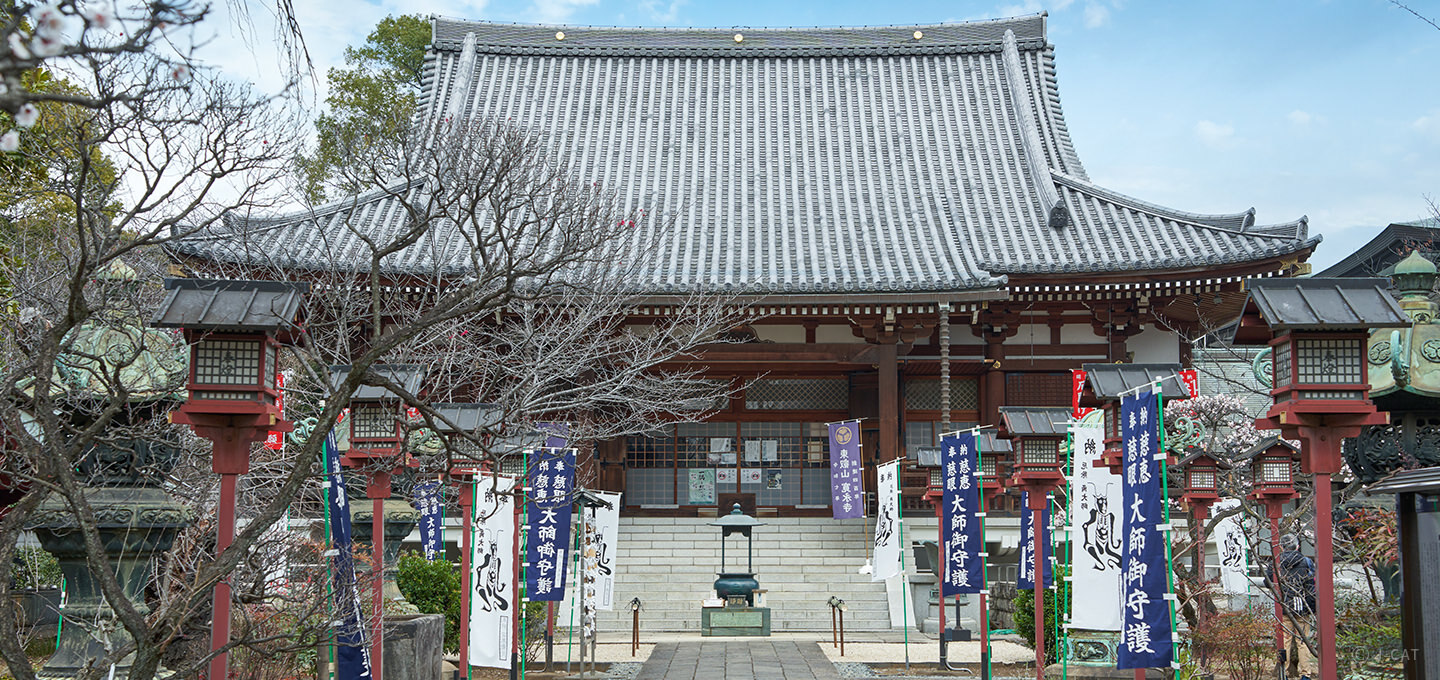
Special Experience
Tokyo
Zazen Meditation and Goma Fire Ritual Center the Inner Self at the Temple of the Shogunate in Ueno, Tokyo
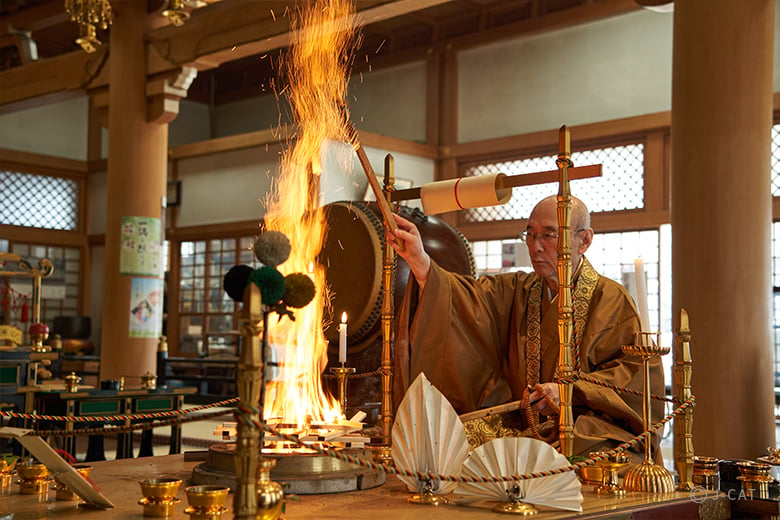
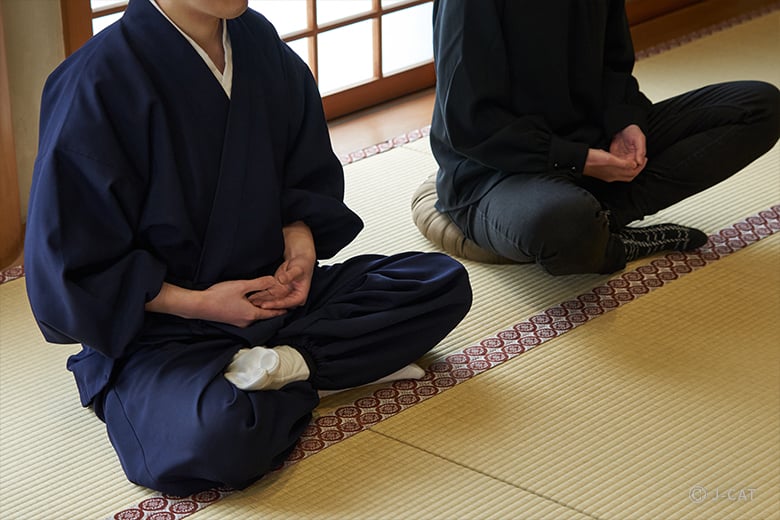
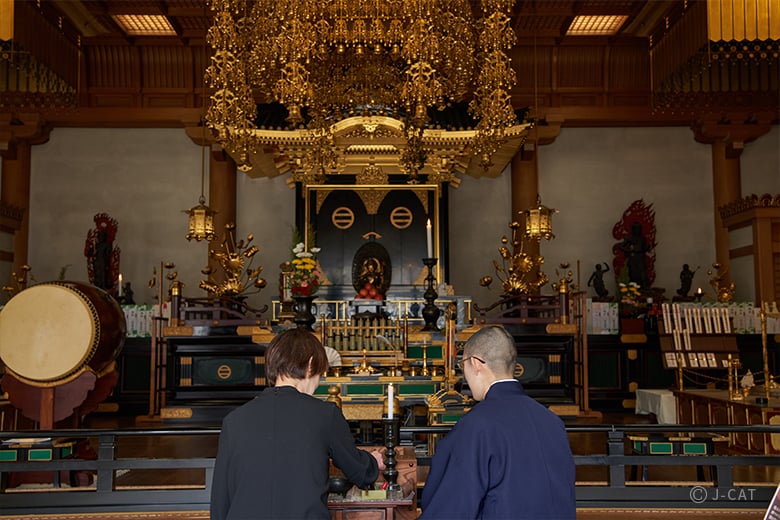
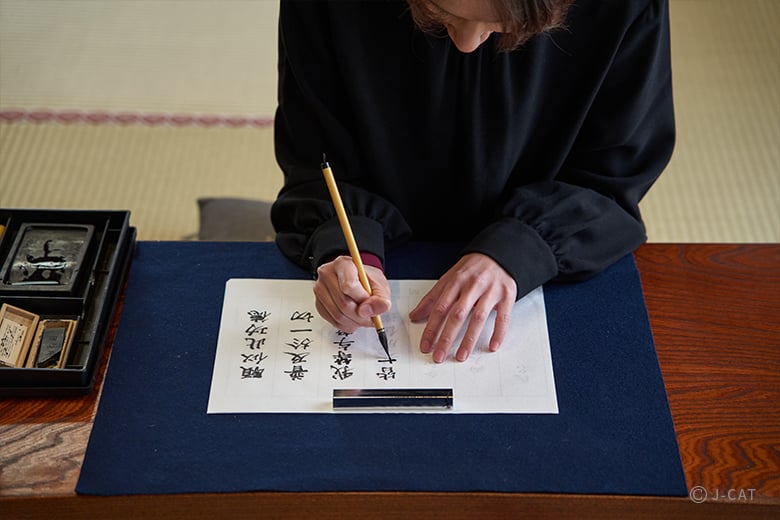
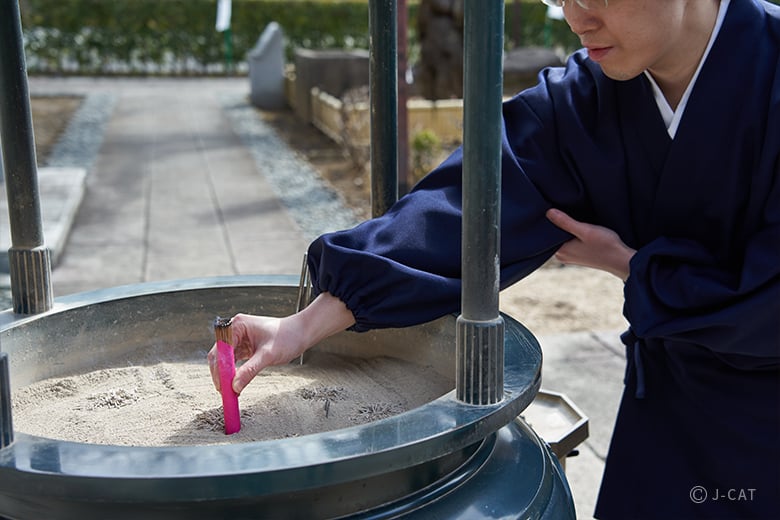
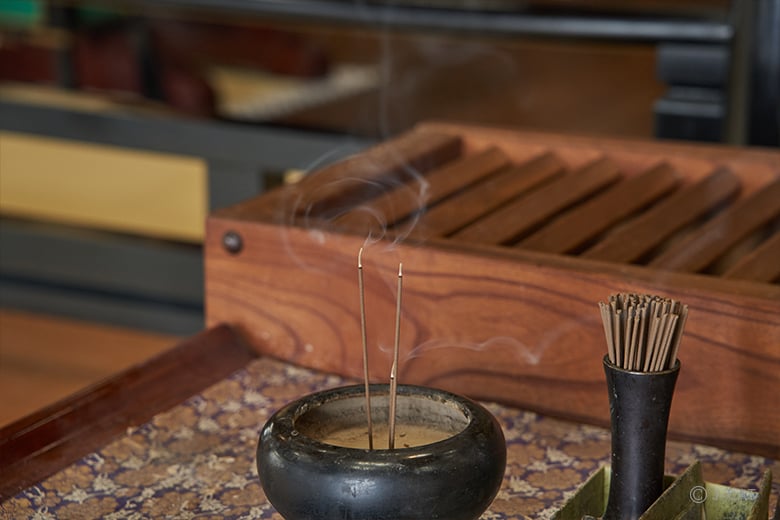
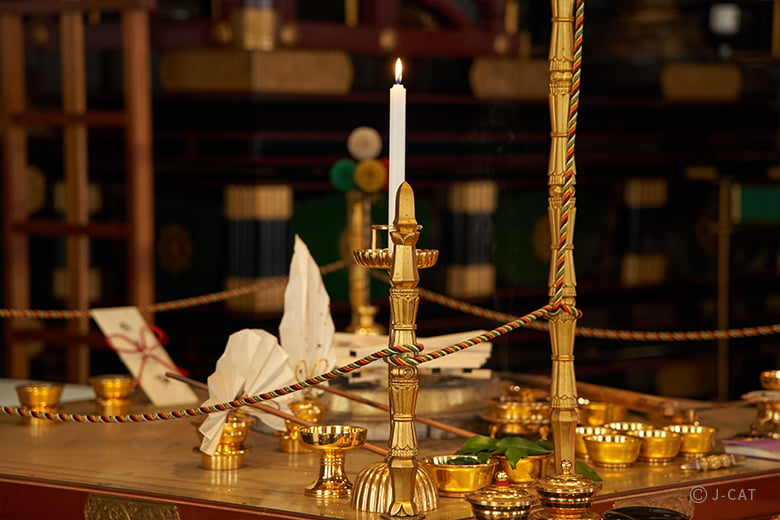
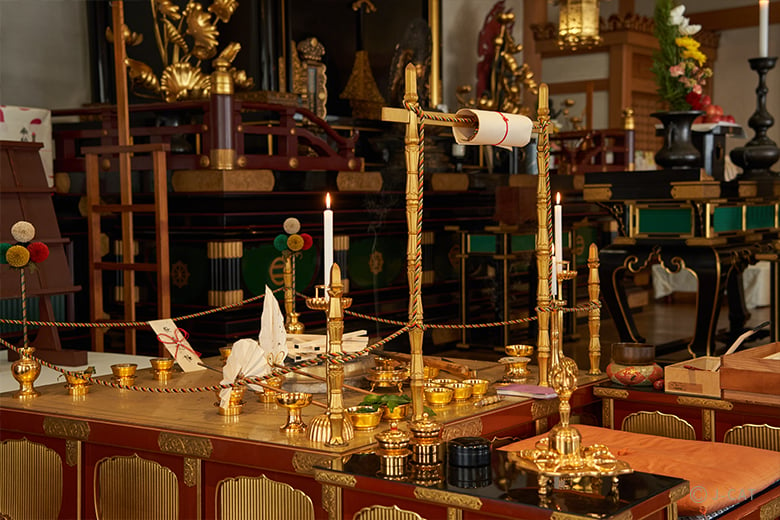
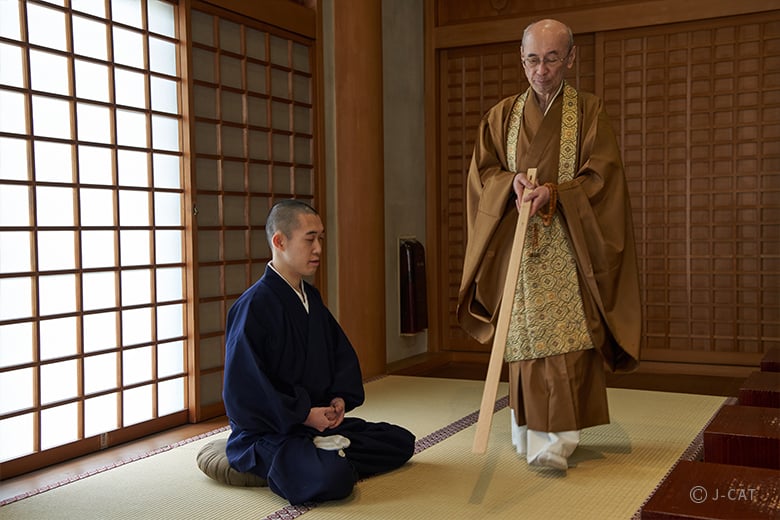
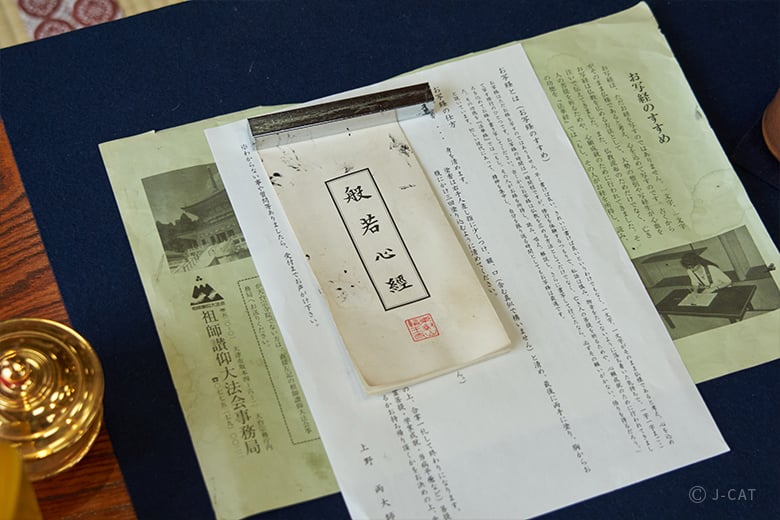
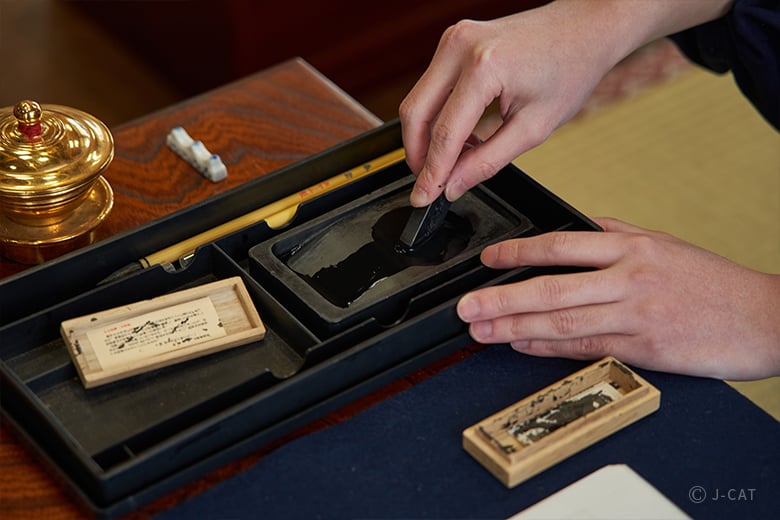
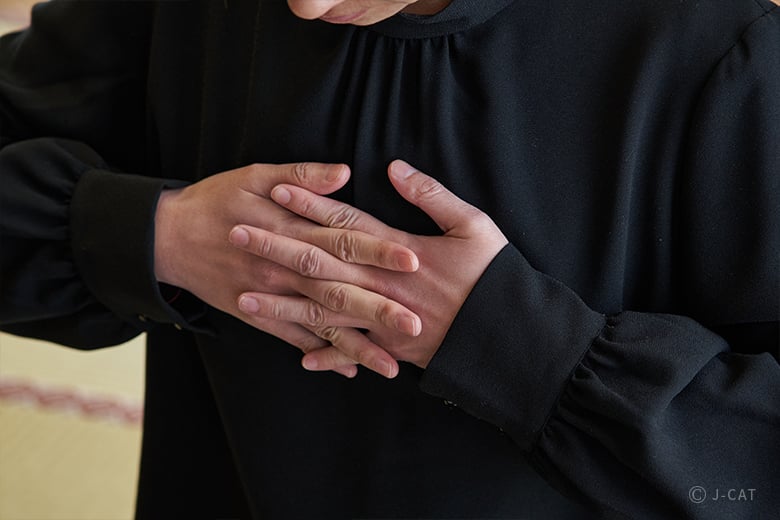
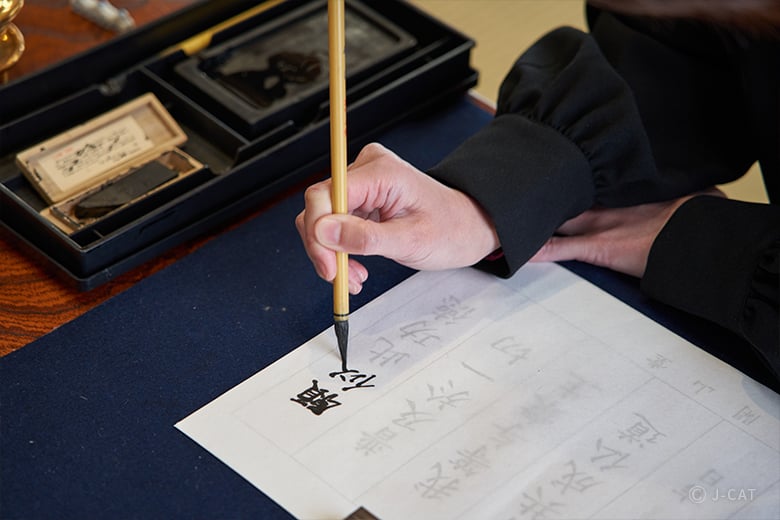
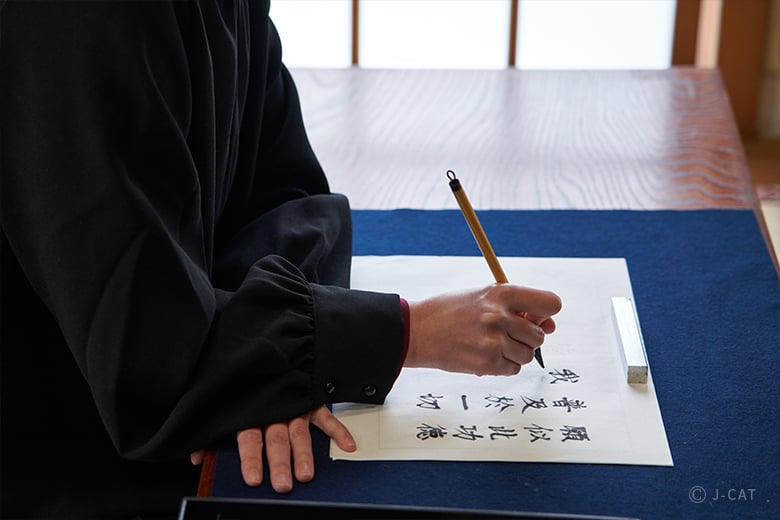
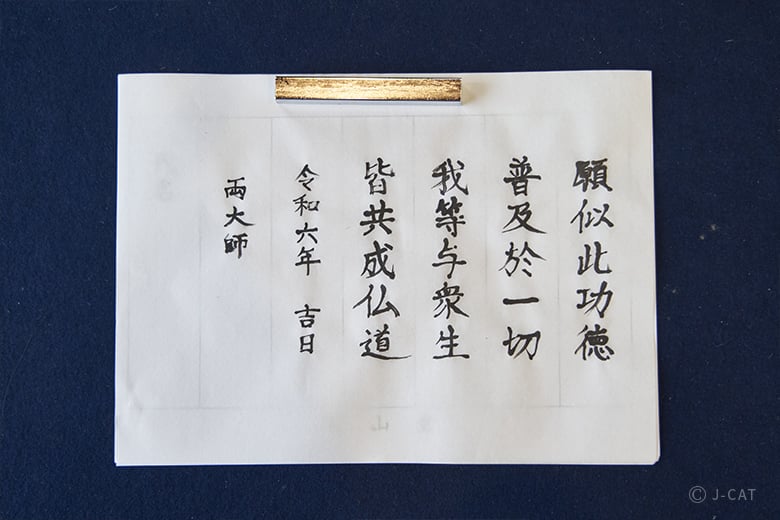
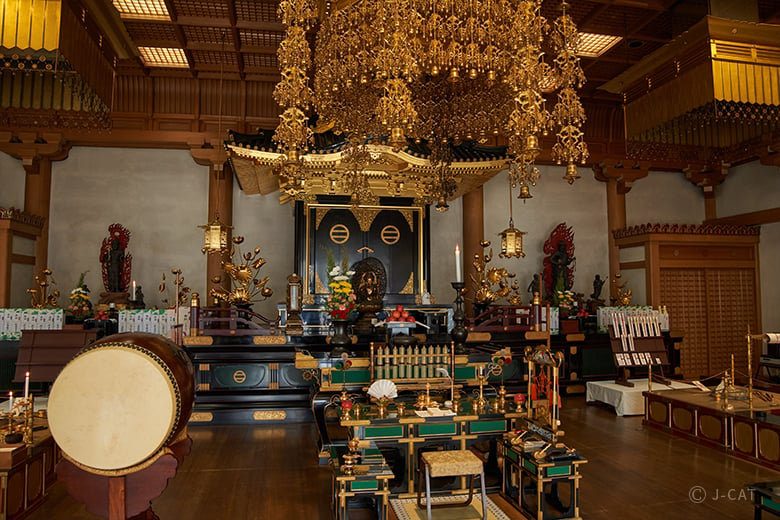
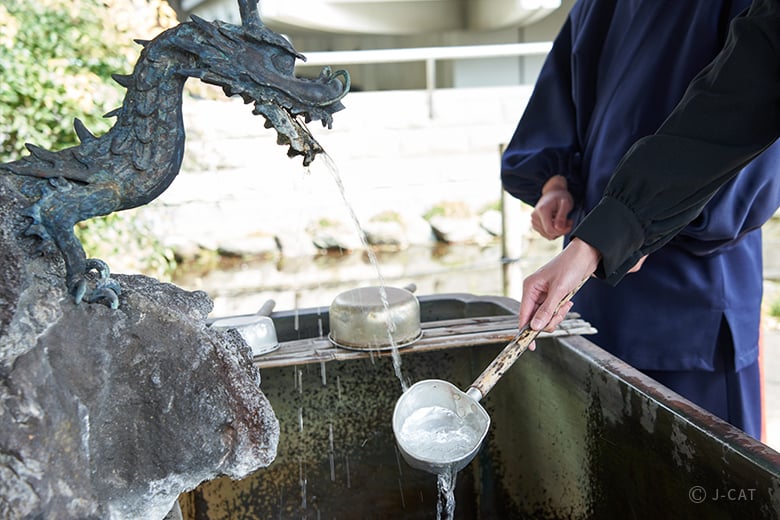
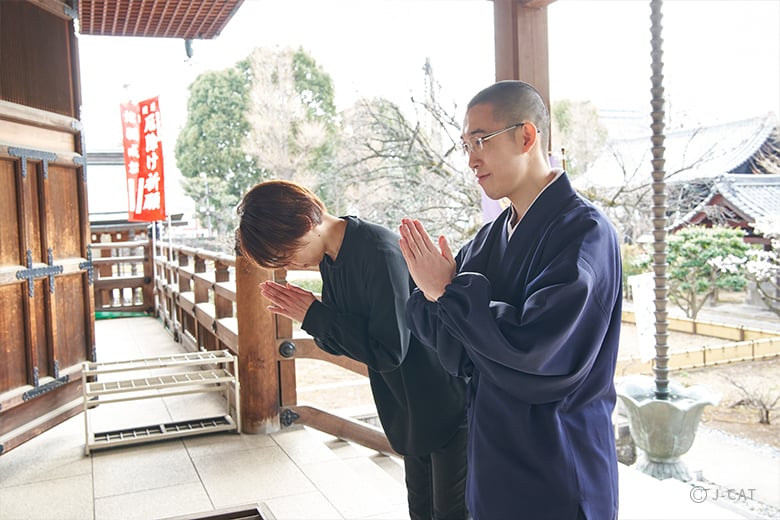
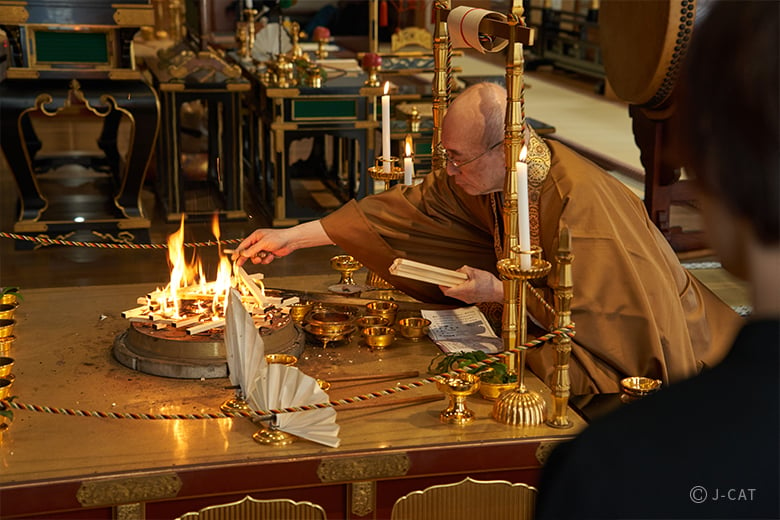
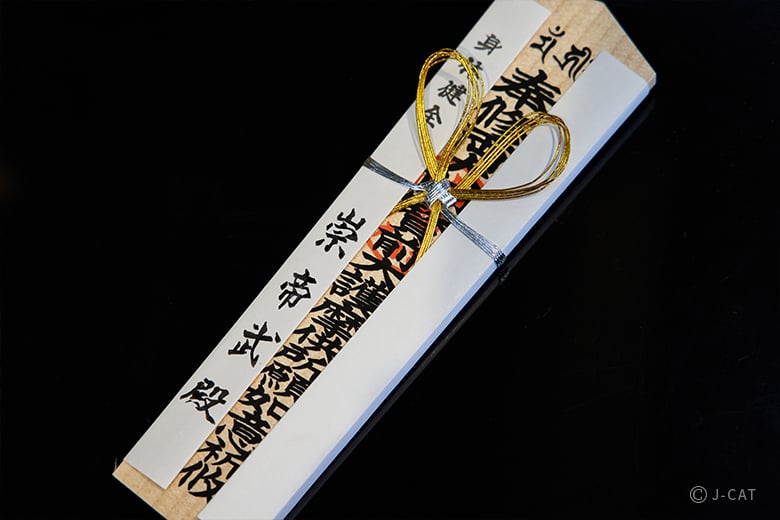
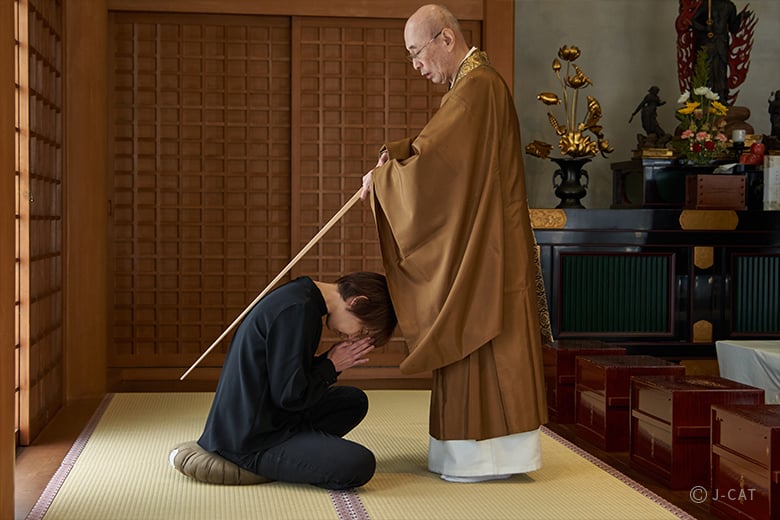
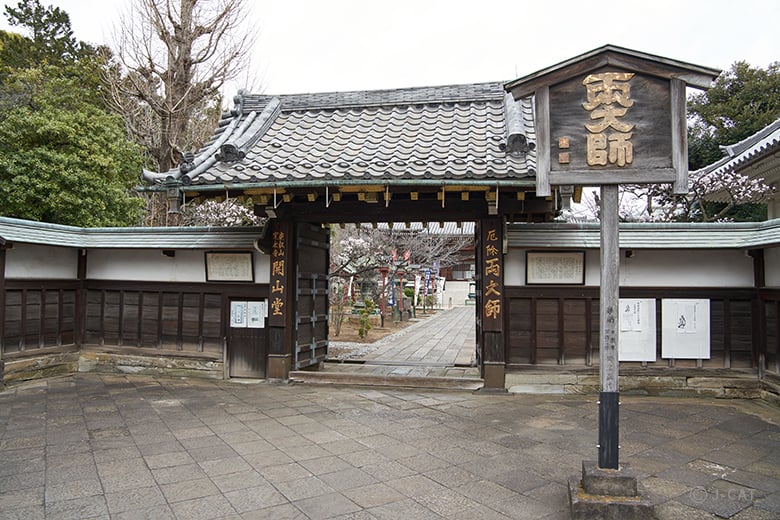
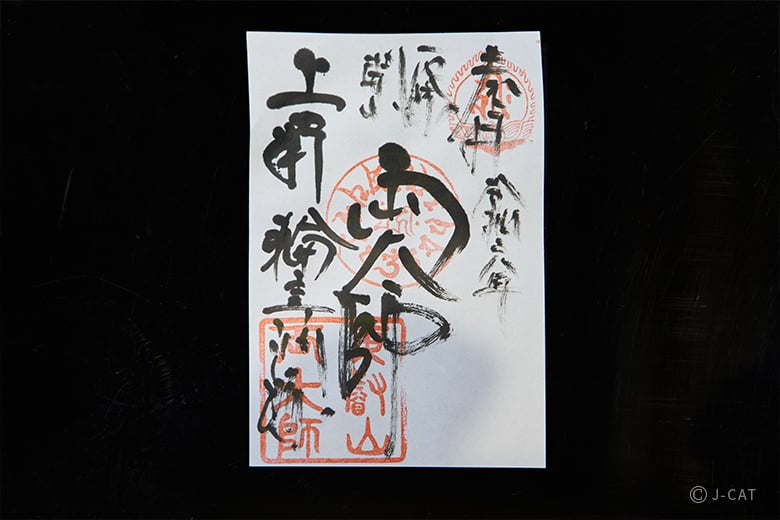
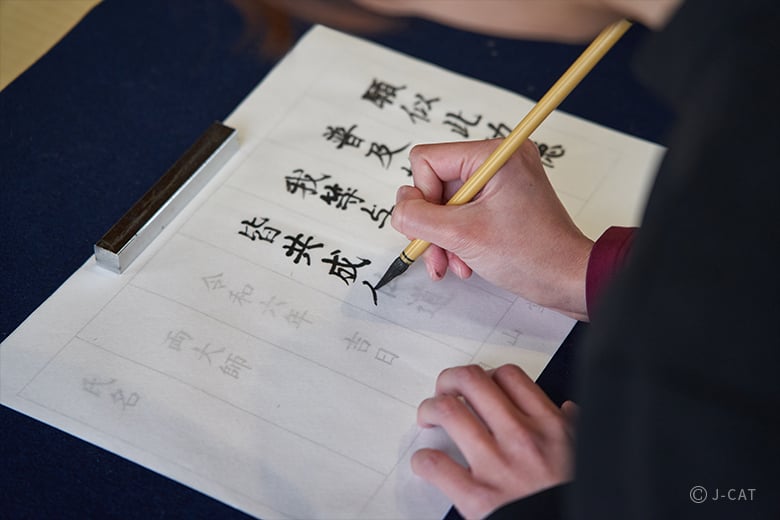
























Overview
The Kan’eiji Temple Kaizando Hall (also known as “Ryodaishi”) is located in Ueno, Tokyo. Built in the 17th Century, this Buddhist site is famous for being the family temple of the Tokugawa dynasty of shoguns who founded and ruled during the Edo Shogunate. Here you can experience goma fire ritual for protection from evil spirits as well as zazen meditation for ascetic self-knowledge. A temple monk will elucidate the temple’s history and teach you its devotional acts, allowing you to immerse yourself in the culture of Buddhism body, mind, and spirit.
Key Features
・An authentic goma fire ritual and zazen meditation session held in the main hall of this venerated temple, especially for you.
・Option: experience the authentic ascetic practice of written sutra-copying, and receive a protective talisman inscribed with your name to use in the goma fire ritual.
・Enjoy a brief serene spiritual respite from the wide range of famous sightseeing spots the surrounding area of Ueno has to offer, including Ueno Park and the Tokyo National Museum.
Tokyo
80mins
from ¥32,000 /person
1 - 10 participants
Available in English
Cancel free up to 11 days prior
Details
A Historic Temple, Watching Over the Ueno Area
Tokyo’s popular tourist area Ueno is home to a variety of cultural institutions, shrines, and temples. There, a short walk from the bustling Ueno Park, stands the serene Kan’eiji Temple Kaizando Hall, also known as Ryodaishi.

Ryodaishi’s hushed grounds, where the still air carries the tones of the consecrated wind chime that wards off evil
The nickname “Ryodaishi '' means “The Two Daishis” (daishi being a Buddhist title which translates directly to “great teacher”), and for good reason. This temple enshrines Tenkai, who was a close advisor to the founder and first shogun of the Edo Shogunate and played a central role in the construction of Kan’eiji itself. It also enshrines a much earlier monk whom Tenkai admired named Ryogen. Both of these men were recognized with posthumous daishi titles, and locals still gather here to pay respects to them.

A statue of the seated Tenkai sits upon the altar of the main hall
At its zenith during the Edo period (1603-1868), the grounds of Kan’eiji encompassed the whole of what is now Ueno Park. The current hall was reconstructed in 1993 after being damaged a number of times by fire, but in one form or another it has stood watch over Ueno since its founding in 1644.
Cleanse Mind and Body Before Paying Respects to the Buddha
Before the goma fire ritual and zazen meditation, a temple monk will instruct you in the devotional rites of the temple. Step one is to pay respects at the sanmon gate with a bow before entering the temple grounds. Next, move to the temple’s ochozuotemizu fountain to wash your hands in a ritual of physical purification before entering the presence of Buddha. After that, let the incense smoke offering envelope you at the temple stairs in a ritual of spiritual purification and blessing.

The ochozu fountain is a place of ritual purification, where visitors wash their left hands, then right hands, and finally mouths – in that order
Make an offering at the offertory box with a silent pressing of the palms together and a bow. Repeat the gesture after entering the temple before sitting down before its principle image of worship. There, light a candle and some incense in offering. After another silent pressing of the palms together and a bow, invoke the full titles of the tutelary figures three times each: “Namu Jikei Daishi” and “Namu Jigen Daishi,” respectively.

At the entrance of the main hall, visitors make an offering before placing their palms together in quiet repose
After paying respects at the altar, the goma fire ritual begins. In this rite, a fire is lit before the mouth of Lord Fudo Myo-o, or “Ofudosama,” as the Buddhist deity Acala is known in Japan. In so doing, the participants in the ritual burn away their mortal attachments.

In a ritual known as otaki-age, while reciting the sutras, monks burn incense and cereal grains as an offering to Ofudo-sama, as the Buddhist deity Acala is known in Japan
Acala is thought to be an avatar of Dainichi Nyorai, as esoteric Buddhism’s supreme Buddha Vairocana is known in Japan. His ferocious expression is said to foster the resolute will needed for Buddhahood, to cut out mortal attachments and worldly desires and in so doing save oneself – and show that even anger has its place on the path to enlightenment.

A talisman for offering in the goma fire ritual, such as you can have inscribed with your name in kanji (additional fees apply)
As an option, participants can make an offering of a personal talisman during the goma fire ritual (additional fees apply). This is an item on which a wish, such as “physical health,” “protection from misfortune,” “business success,” and “safe transit,” is inscribed alongside your name in kanji as a form of prayer to the Buddha. At Japanese temples, such talismans are customarily brought back to be burned at a certain point, such as at the end of the year or upon the answering of a prayer. Display yours with care upon your return home.
Center Yourself with Zazen Meditation, and Absorb Buddhist Principles through the Written Copying of Sutras
After the goma fire ritual, take part in a special zazen meditation in the inner sanctum of the temple’s main hall. Here, you will first learn the proper sitting position of ascetic Buddhist meditation and find stability in it before moving on to using repetitive deep breathing exercises to center yourself. Traditionally, zazen practitioners continue this for the duration of one whole incense stick, but this is quite a tall order for those not practiced in the rigors of this style of meditation. Participants in this experience will perform a shortened version.

Focusing on your breathing, enter the world of Zen
A famous component of temple zazen is the oversight of the chief priest, who makes rounds with a long wooden keisaku stick, striking those meditating one by one on their shoulders and back upon their request with a bow and a joining of the palms. This improves blood circulation and reinvigorates zazen practitioners to be able to maintain focus.

Copying a sutra from a model specially prepared by the temple’s chief priest
As an additional option, experience the ascetic exercise of written sutra transcription after finishing zazen. This practice began as a way for monks to study the teachings of the Buddha more closely, but over time it evolved into a devotional ritual in its own right, where the act of writing a sutra had value in and of itself. In the modern age, a growing number of people in Japan have taken it up as a hobby.
Immersion in Buddhism through Body, Mind, and Spirit Puts You in Touch with Your Inner Self
When the experience is over, walk the temple and its grounds to your heart’s content. Depending on the season, you may be able to enjoy the temple’s cherry blossoms during your leisurely stroll. Finally, take home an official goshuin temple stamp to commemorate your visit.

A commemorative goshuin temple stamp marks your visit
This Wabunka plan begins by paying respects at the temple altar before an experience of the goma fire ritual, zazen meditation, and an optional sutra transcription, for a complete journey through the precepts of Buddhism with body, mind, and spirit.
Kan’eiji Temple Kaizando Hall (“Ryodaishi”)

Kan’eiji Temple Kaizando Hall (“Ryodaishi”)
A 17th Century Buddhist Temple in Tokyo’s Ueno area that enshrines the ryodaishi, or “two great teachers”: 17th Century monk Tenkai and his 10th Century monk hero Ryogen. Tenkai, who played a central role in the founding of the temple itself, was a confidant and close advisor to Tokugawa Ieyasu, the first shogun of the Tokugawa dynasty. This pairing has grown to inspire the faith of locals, who still gather here to pay respects to these twinned spiritual sages.
Customer's Voice
The zen experience was superb and exceeded all expectations. Great. A big surprise. Great location, great priest, great experience. AAAA++++.
A.T. Netherlands
The experience was great price was very expensive. Also the distance to the venue should have been given/explained in more depth
P.V. India
The priest was fantastic.
X.C. United States
Location
Rinno-ji(Ryodaishi)
Taito Ward, Tokyo
Request for booking
Select first preferred date (JST)
February 2026
Sun
Mon
Tue
Wed
Thu
Fri
Sat
Instant Booking
Request Booking

17
Full

17
Unavailable
- Instant Booking: Your reservation is confirmed immediately upon payment.
- Request Booking: You will receive confirmation after the host reviews your request.
Tokyo
80mins
from ¥32,000 /person
1 - 10 participants
Available in English
Cancel free up to 11 days prior
Things to know
Contact Us
If you have any questions, please contact us using the form below.
We also accept bookings from corporate clients and travel agencies.